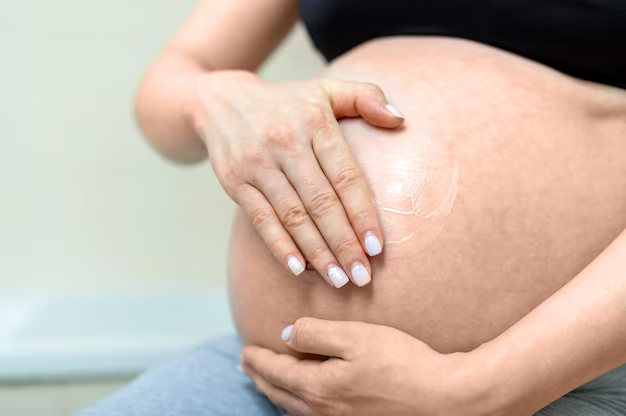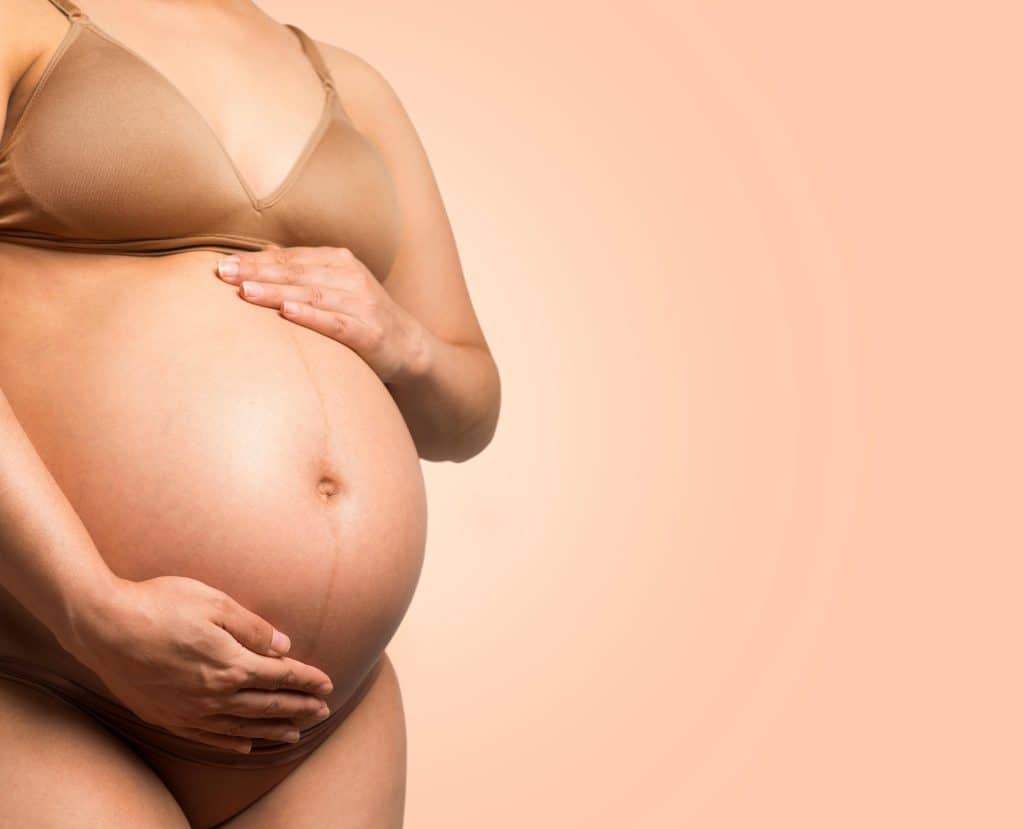Perioral Dermatitis in Pregnancy: Causes, Symptoms and Treatment
Pregnancy can cause women to become more vulnerable to various conditions, including perioral dermatitis.
Perioral dermatitis is also known as periodermatitis, peridermal dermatitis, periorificial dermatitis, and facial dermatitis. It is marked by red, flaky patches around the mouth, but may also occur around the eyes, nose, cheeks, or jawline. This skin condition is prevalent but often misinterpreted and can be confused with other dermatological problems. This article will explore perioral dermatitis in pregnant women, focusing on causes and triggers, symptoms and treatment options.
Perioral Dermatitis in Pregnancy: Causes and Triggers

The most common causes of perioral dermatitis include steroid creams, skincare products, hormone changes, stress and weak immune systems. Alongside these contributing factors there are additional reasons why perioral dermatitis may flare up during pregnancy:
Hormonal Changes
Estrogen and progesterone levels can fluctuate drastically during pregnancy. This causes the skin to become more prone to irritation due to increased oil production and a diminished inflammatory response. Hormonal perioral dermatitis flare-ups can result, which may be prolonged and persistent due to constant shifting of hormones during pregnancy
Stress
Rising cortisol levels are common during pregnancy. These can be caused by physical changes to the body and lifestyle adjustments, such as weight gain, lack of sleep and health anxiety. Stress disrupts the skin’s natural healing process and makes breakouts of perioral dermatitis in pregnancy more persistent as the skin barrier is weakened.
Increased Skin Sensitivity
The skin’s protective barrier is compromised during pregnancy due to disruptions in the skin’s microbiome. This helps protect the skin against harmful bacteria and inflammation. Erosion of the microbiome can also cause pregnant women to become more sensitive to skincare products which can cause irritation. The skin requires a healthy microbiome to heal correctly after exposure to harsh ingredients
Topical Steroid Withdrawal
Some pregnant women may have used topical steroid creams – such as hydrocortisone cream, to solve skin conditions prior to pregnancy. Many women stop using steroid creams during pregnancy for safety concerns. The sudden discontinuation of these products can lead to inflammation and worsening of perioral dermatitis symptoms while the skin is adjusting.
Change of Skin Routine
Many women switch to pregnancy safe skincare products to avoid harsh ingredients. This shift can cause reactions due to disruption to the skin, barrier damage and an increase in sensitivity. Our skincare range is a pregnancy safe option for women which harnesses the power of snail mucin to perform gently on the skin, therefore, making the transition in skincare routine less likely to cause irritation
Perioral Dermatitis Symptoms and Diagnosis
The main symptoms of perioral dermatitis include:
- Red rash around the mouth
- Burning or itching sensation
- Feeling of tightness in the skin
- Vesicles (clear, fluid filled bumps)
- Pustules (white, fluid filled bumps)
Perioral dermatitis can be easily confused with other skin conditions such as acne, rosacea and lupus due to its rash-like appearance and bumps. This is why it is imperative to visit a doctor or dermatologist to ensure the correct diagnosis of the treatment as self-medicated treatments without a correct diagnosis may cause more irritation to the skin. Pregnant women should consult medical help if they suspect they have perioral dermatitis as soon as possible to ensure their symptoms do not worsen.

Safe Treatment of Perioral Dermatitis in Pregnancy
As previously mentioned, pregnant women must ensure they take the utmost care when applying skincare products or taking medication, therefore, Doctors and dermatologists are limited in what they can prescribe for the treatment of pregnant women.
Some of the most popular prescriptions for the treatment of perioral dermatitis include antibiotic treatments, azelaic acid or sulfur based face washes. Similarly to medical prescriptions, many over the counter medications are also not suitable for pregnant women. Over the counter remedies may include topical antibacterial creams or barrier repair moisturisers.
Due to the constraints surrounding what products pregnant women can and cannot use, natural treatments are a popular way to treat perioral dermatitis. Our snail mucin products can be the perfect choice to treat perioral dermatitis in pregnant women. The 100% natural product range includes a variety of skincare items which pregnant women can use. To specifically target perioral dermatitis, our atopic cream is the best choice to heal and repair the skin impacted by perioral dermatitis and is “specially crafted to soothe redness, calm irritation and restore balance to sensitive skin”.
Conclusion
Perioral dermatitis can be a difficult condition for pregnant women to manage on top of other pregnancy symptoms they may be experiencing. Understanding triggers and symptoms can ensure the condition is treated correctly and not misinterpreted as another skin disorder. As medical treatments are limited in pregnancy, natural alternatives offer a safe and effective solution. Bragan Skincare’s atopic cream is a pregnancy-safe option to relieve inflammation, repair the skin barrier and soothe irritation. By choosing a natural, gentle remedy for perioral dermatitis, expectant mothers can maintain healthy and rash-free skin throughout their pregnancy.
Related articles:
Natural Remedies for Dermatitis on the Face
Additional Information
The Primary Care Dermatology Society provides additional guidance on skin conditions affecting women during pregnancy.
Featured Bragan Skincare Products
-
€39.99 – €100.00Price range: €39.99 through €100.00Select options This product has multiple variants. The options may be chosen on the product page
-
€100.00Select options This product has multiple variants. The options may be chosen on the product page

